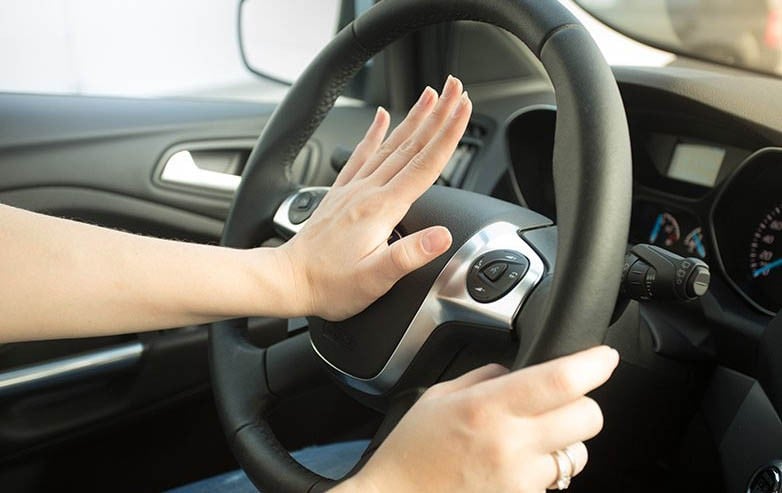
The faithful are heavily sleep-deprived, their ability to think clearly is severely hampered, and their capacity to choose their responses to common everyday occurrences is also quite limited

For the longest time, I was advised by my mother that, "beta, wherever you have to be for iftar, be there early," and being somebody who’s always been running against time to be on time anywhere, I never quite understood it. But now I do. My mother’s advice had nothing to do with being on time, which in itself is a wonderful yet impossibly difficult thing to achieve, or having first dibs at the iftaar table. It had everything to do with not being on the road in what we now call, "crazy hour".
You know what I’m talking about -- cars, motorcycles and donkeys all moving in freefall, traffic wardens nowhere to be seen. Two cars smashed together in the middle of the road, drivers out of their vehicles arguing, whilst their families melt in the car. Of course, the air conditioning isn’t on, have you seen the price of petrol in Naya Pakistan?
Why does Ramzan bring out the best in us? It’s all science, stupid, and a total lack of self control. But first, the ‘sciency’ bit.
Total body water comprises approximately 45-75 per cent of a person’s body weight. Muscle mass is 70-75 per cent water, while water in fat tissue can vary between 10 and 40 per cent. Water acts as a transporter of nutrients, regulates body temperature, lubricates joints and internal organs, provides structure to cells and tissues, and can help preserve cardiovascular function.
Needless to say then, that even a little drop in the body’s water levels can have a remarkably negative effect on a human being. Traditionally, a 2 per cent or more body water deficit was thought to produce cognitive performance decrements; however, recent literature suggests that even mild dehydration -- a body water loss of 1-2 per cent -- can impair cognitive performance. Some studies suggest that 2 per cent body water depletion leads to 20 per cent loss of focus.
Apart from impaired cognitive performance, most people are also sleep-deprived during this month; if not sleep-deprived, then at least going through an irregular sleep schedule. What this creates is daytime sleepiness, further impacts brain functioning, and general fatigue.
Now you know why the teller at your local bank seemed a little slow?
With Ramzan falling right at the start of summer, the faithful are having to endure daily fasts of 15 plus hours, in temperatures hovering at the 40 degree celsius mark. What all this means is that by the time iftar approaches, our ability to function normally is severely hampered.
What does all this mean anyway? Well, to put it simply, the faithful are heavily sleep-deprived, hence half asleep, their ability to think clearly is severely hampered, and their ability to choose their responses to common everyday occurrences is also quite limited.
Now that I’ve mentioned it, you may well be thinking, Oh, this makes sense.
What’s strange is that whilst most of us become monsters in public, our charitable side starts working in overdrive, sometimes even at the cost of becoming a public nuisance. Take for example, the good people handing out free iftars to the poor. While this is a terribly noble cause, one that deserves at least a round of applause, the fact that they sometimes do it in the middle of the road, or outside their homes in the lane, causes traffic issues. And because it’s already ‘crazy hour,’ the probability of all hell breaking loose becomes significantly higher.
But they don’t see it like that. They are being charitable. To be fair, this isn’t too different from what we see outside most mosques every Friday: people praying outside, on main roads, without a care for the traffic and the problems they are causing. Have they ever considered the next mosque rather than the road?
Also read: Sunset…sunrise
Show of religiosity trumps civic sense, every day of the week; even more so during the holy month.
And the buck doesn’t stop there. People know that they’re not up to their best. And rather than fight their terrible selves, which is what I thought was one of the main purposes of this yearly exercise, they calmly lay the blame on the state they’re in. Like the rickshaw driver who rammed into an acquaintance’s vehicle recently, baaji maaf kar dein, mera roza hai, nazar nahin aaya’.
So much for ‘dein aur dunya ko saath le kar challein’.
I met someone recently who claimed that he had stopped fasting out of public interest. What does that even mean, Tariq? "Well, I become a terrible person, I’m mostly angry, incapable of conversation, inefficient at work, and generally worthless for 15 hours of the day. So I figured that if I can’t be my normal self while fasting, then perhaps it’s best to let it slide." Tariq may well be going to hell, but he may have a point.